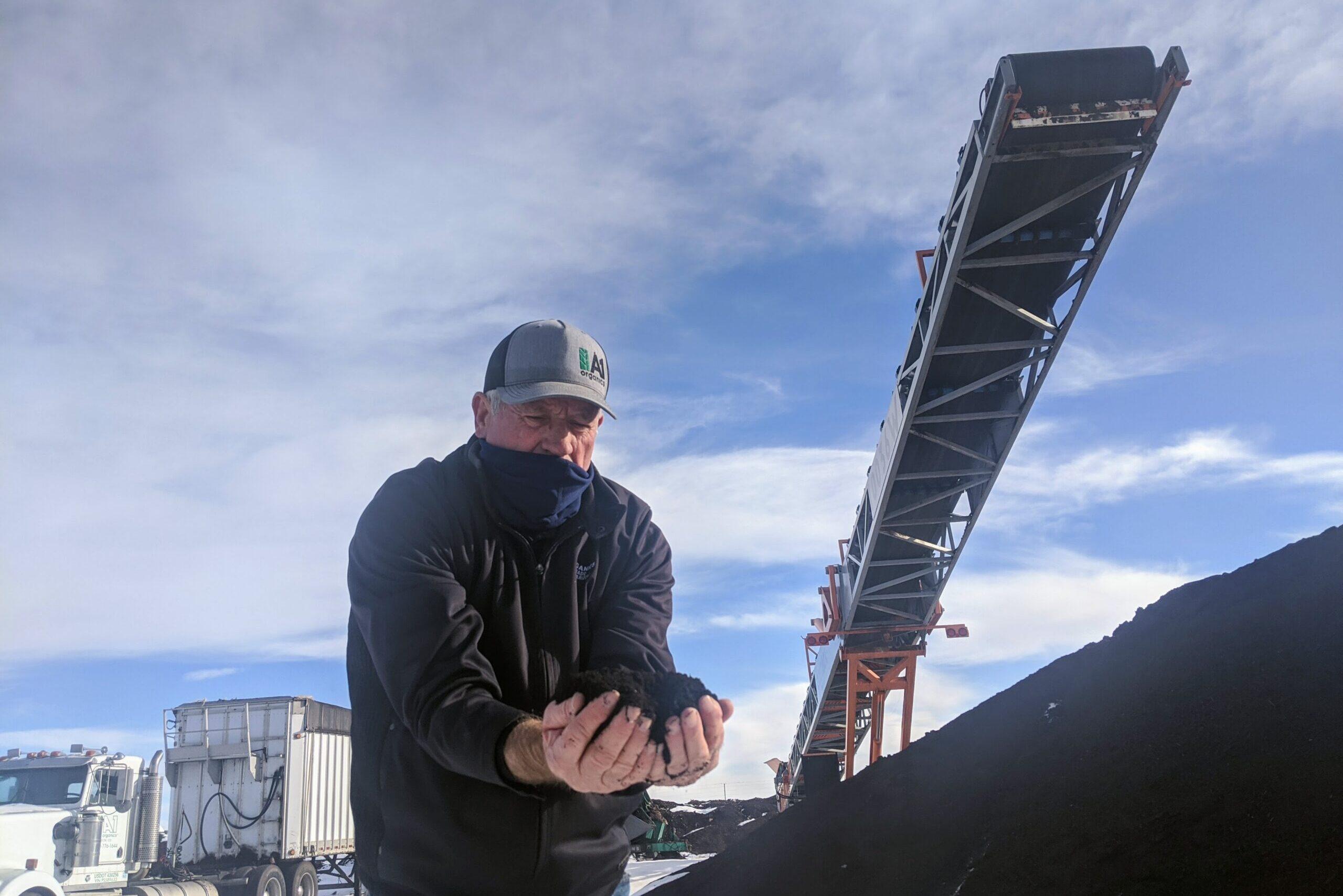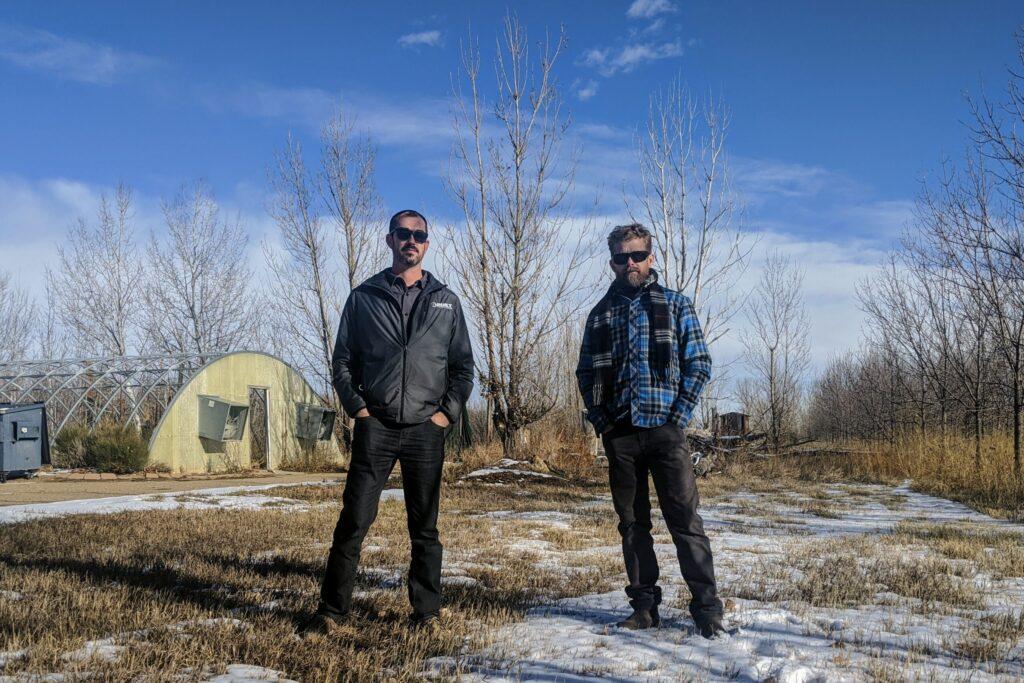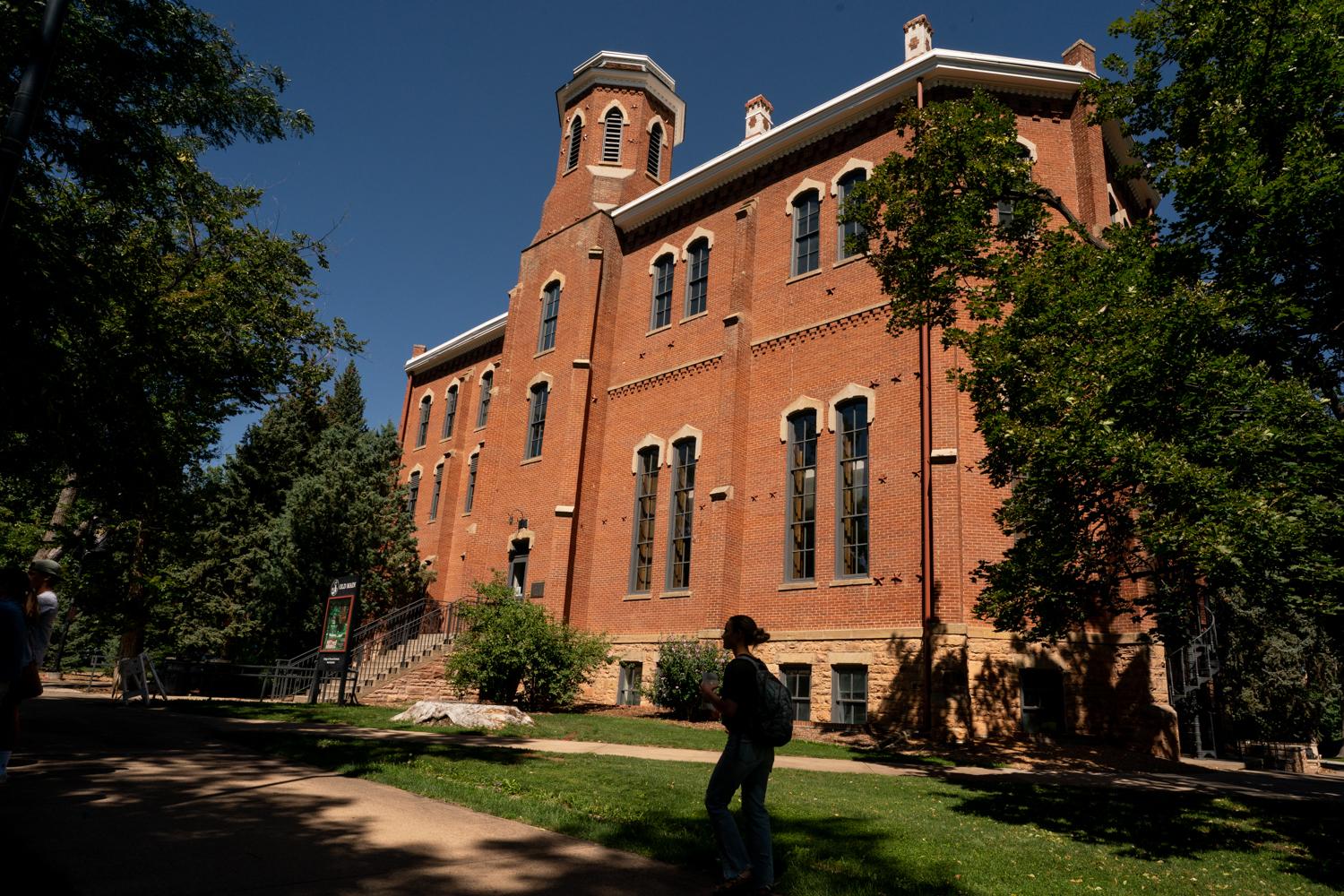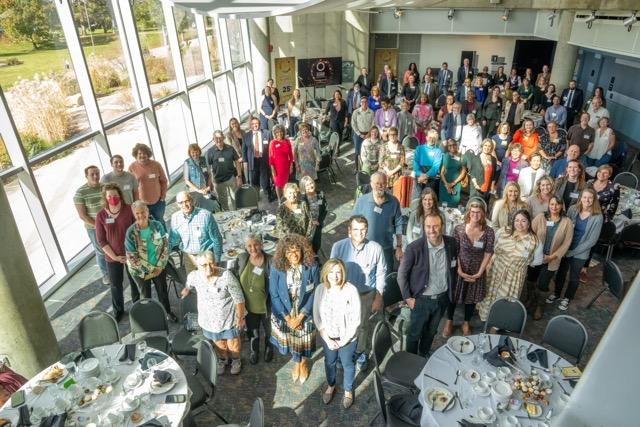
Birds circle as a semi-truck dumps its contents at A1 Organics in Keenesburg in northeastern Colorado.
Bob Yost, a company vice president, watches the mixture of yard waste and food scraps form a long pile. The material comes from cities in Boulder County, all of which now offer residential compost pickup. The orange peels and tree branches are ground before being trucked about 50 miles to A1, where massive machines stir the material until it decomposes into compost.
But Yost said little of the final product will return to food producers along the Front Range. Most of it ends up going to landscapers.
“For me to haul this product all the way back to Boulder for an agriculture application — it’s cost-prohibitive,” Yost said.
For years, Boulder County has worked to build a publicly owned compost facility far closer to residents and their food waste. While advocates see the plan as a climate change solution, it’s met fierce resistance from residents who worry the site could stink up their backyards and undermine the county’s prior commitments to protect open space.
Boulder County’s Compostable Dreams
County officials first detailed plans for the compost site in early 2020. After reviewing a slate of options, Boulder County landed on the old Rainbow Nursery, a dilapidated, 40-acre tree farm just south of Longmont along U.S. Highway 287.
While Yost, a consultant on the project, knows it could someday cut into his business with Boulder County communities, he said there’s plenty of compost to go around. Data from the Colorado Department of Public Health and the Environment shows Colorado sends 84 percent of all its waste to landfills. A full third of that material is compostable.
“There’s way too much supply in this state,” he said.
He added there’s a chance Boulder County could contract his company to operate a future facility.
Dan Matsch has also pushed for the facility as the compost program director for Eco-Cycle, a zero-waste nonprofit that already operates a recycling facility for Boulder County. He said a similar compost facility would be a multi-front attack on climate change. It could keep food out of landfills where it produces methane, a potent greenhouse gas. Food scraps also wouldn’t need to be trucked to the Eastern Plains, further slashing emissions.
Matsch also hopes the new facility would also make compost affordable to local farmers. Research has shown the material can help sequester carbon, both by adding organic matter to soil and promoting plant growth.
“To me, that’s hopeful enough to get out of bed in the morning,” Matsch said.
Not All Residents Are On Board
While residents living near the proposed project see the benefits of compost, they worry the plan could open the door to all kinds of other developments, including oil and gas projects.
Brandon White moved his family to a small farm next to the old nursery three years ago. He bought the property, where he now grows hay and raises chickens, partially because of the area’s resistance to development. For decades, the county has mostly kept the area around the big cities free of subdivisions, strip malls and oil and gas wells.

What White didn’t count on was a county-owned compost site.
White said he learned about the plans from an item on the county commissioners’ agenda. He said the news came as a surprise since he knew there had been a conservation easement on the property, which generally restricts any development.
“To me, it’s kind of a slap in the face to taxpayers and people who care about conservation,” said White.
To develop the site, White said officials have relied on some tricky legal and financial moves. The county has owned the conservation easement on the property since 1994, but bought the land a couple of years ago. According to the Boulder County website, since it now owns both the easement and the land, “the property interests merge together and the conservation easement ceases to exist.”
The county also purchased the land and the easement using tax revenue for open space projects. While it’s now held by the county Parks and Open Space Department, officials say it can undergo a public process to use the land for other purposes.
In November, residents demanded a meeting at the old nursery with county officials, which they filmed and posted on YouTube. Andrew Barth, a spokesperson for the county public works department, said the gathering was the first time he realized the extent of the opposition to the project.
“I didn’t think about a neighborhood being in a compost area,” Barth said. “We really heard exactly what the neighbors thought of it.”
At the meeting, Barth assured the residents the facility wouldn’t be an open compost heap. Instead, the material would be dumped in an enclosed building and composted in covered concrete bunkers. Barth said similar facilities in other locations have shown the process vastly cuts down on odor and water pollution.
A Slippery Slope For Development?
Rob O’Dea, a local resident who lives a few miles from the proposed site, also joined the meeting. He worries about the local impacts of the project but also fears the county’s logic for developing the land could have a far larger impact. That’s because private landowners might make similar moves to cancel conservation easements.
“If the county succeeds in this, it opens the door to oil and gas in any open space,” he said. “It opens the door to any land owner to buy land with an easement.”
O’Dea said residents hope to file a lawsuit against the county this week demanding it reinstate the land’s original conservation easement if it's ever used for something other than open space. In the meantime, officials have paused efforts to bring the plan before Boulder County’s planning board in light of the opposition from residents.
“This doesn’t mean that we’re not moving forward with the project,” said Barth. “It just means that we’ve decided to take more time to review all of the project components to ensure we’re on track and designing a facility [that’s] safe, sustainable and environmentally sound.”








